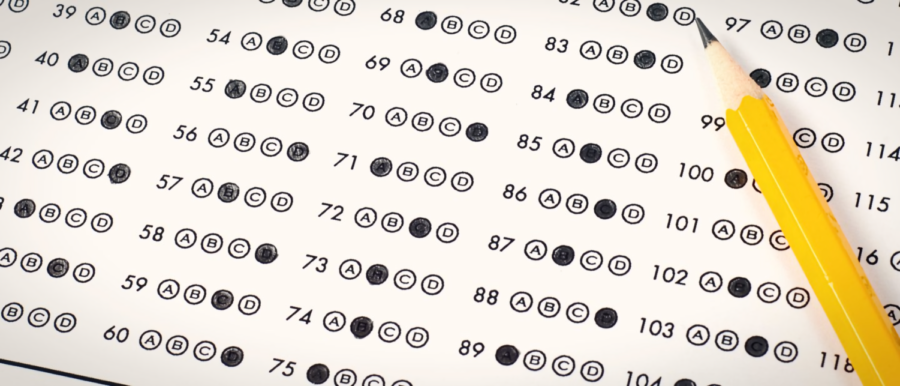Is it Worth it to Take the PSAT/NMSQT® and SAT®?
April 26, 2021
Lots of sophomores and juniors have kept studying for the SAT® and PSAT/NMSQT® throughout the lockdown. However, many colleges and universities have dropped the requirement of including an SAT® score in applications for the Classes of 2021 and 2022. There are two names for this condition: test-optional and test-blind.
“So many colleges have now gone test-optional or test-blind. All of the colleges that are test-optional tell students that if they have an SAT® or ACT score that they want to submit as part of their application, then they are welcome to do so. And they will use it in the admissions process as an evaluating factor… Test-blind colleges like the UC system and the Cal State system will not look at scores even if students send them,” said Ms. Fitts, the College and Career Counselor of Arcadia High School (AHS).
However, this does not mean that a student should not submit a test score with their application. According to Ms. Fitts, colleges can still use a student’s SAT® score to determine which classes they should take as a freshman. Additionally, the SAT® adds another factor to an application.
Ms. Fitts said that in a college application, the number one component is a student’s high school transcript. This includes the types of classes, the trends of their performance, and whether a student is challenged enough by their classes. AHS also sends a profile of what type of school it is and its curricula so that the colleges can compare it to the student’s transcript.
Before test-optional conditions, standardized test scores were the second most important factor in an application. Some schools are still quite set on keeping the scores as a key component in admissions while others are not. Even before COVID-19, a couple of schools were already trying a test-optional condition. This is because a lot of research shows that standardized testing is unfair; some students do not have the same resources and type of preparation for the SAT® that others do. More and more schools are recognizing and discussing this.
According to The Washington Post, “Critics say SAT® and ACT results follow a pattern of all standardized test scores: Kids from poor families do worse than kids with more money. Wealthy parents can provide benefits that many poor families can’t, such as tutors, learning opportunities, the best medical care and schools with ample resources.”
The possibility of permanently cutting standardized testing from college applications is uncertain. Admissions committees are reviewing and discussing the topic, and newspapers are releasing articles regarding it. As of now, the SAT® and ACT are still a part of applications.
“I would still recommend that students take an SAT® or an ACT test in their junior year because by doing so they’re just possibly giving themselves more options. For example, for the UCs and the Cal States, for right now at least, they’re not going to be using those scores for admissions. But they might use them down the road for placement… There really is no downside to taking it. Just to have the score is just one more factor that the colleges might use in the admissions process if the student chooses to send their score,” said Ms. Fitts.
Taking the PSAT/NMSQT® is also “worth it.” Juniors who take it will have the chance to try to qualify for the National Merit Scholarship. Ms. Fitts encourages students to attempt getting the scholarship though only a handful of students end up qualifying.
However, Ms. Fitts also wants to stress that students should not use too much time to prepare for the SAT® exam. She said that now, colleges are increasingly focusing on what makes a student an interesting person and an appealing applicant. Using time to study for the SAT® exam can take time away from extracurriculars, studying for classes, and participating in other activities that can benefit a student when writing a college essay or being interviewed.
Currently, students who graduate after the Class of 2022 will be required to submit a standardized test score when applying to a college. For more information regarding a specific college and their policy about the topic, Ms. Fitts recommends this website.
Photo courtesy of CAPPEX.COM.
PSAT/NMSQT® is a registered trademark of the College Board and the National Merit Scholarship Corporation, which are not affiliated with, and do not endorse, this site.
SAT® is a registered trademark owned by the College Board, which are not affiliated with, and do not endorse, this site.

